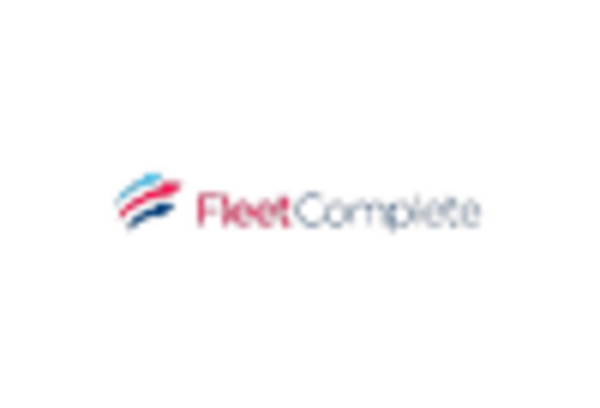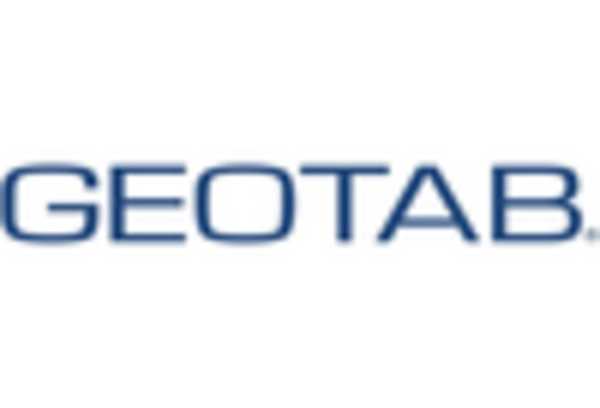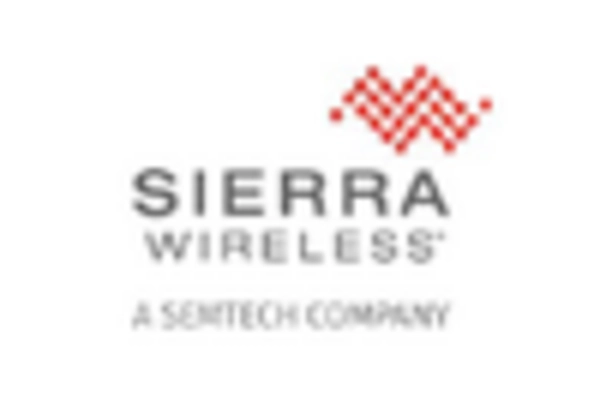Enhanced Security Measures
The need for enhanced security measures is a critical driver in the Trailer and Cargo Container Tracking Market. With the rise in cargo theft and loss, companies are prioritizing the implementation of tracking solutions that offer robust security features. These solutions not only provide real-time location data but also include alerts for unauthorized access or tampering. The increasing awareness of security risks associated with logistics operations is prompting businesses to invest in advanced tracking technologies. As security concerns continue to grow, the demand for reliable tracking solutions is likely to escalate, further fueling market expansion.
Rising E-commerce Activities
The Trailer and Cargo Container Tracking Market is significantly influenced by the rising activities in e-commerce. As online shopping continues to expand, the demand for efficient logistics and supply chain solutions has intensified. E-commerce companies require robust tracking systems to ensure timely deliveries and maintain customer satisfaction. The increasing volume of shipments necessitates advanced tracking technologies that can provide accurate information on cargo status and location. This trend is expected to propel the market forward, as businesses seek to optimize their logistics operations to meet the growing expectations of consumers.
Integration of IoT Technologies
The integration of Internet of Things (IoT) technologies is transforming the Trailer and Cargo Container Tracking Market. IoT devices enable seamless communication between trailers, cargo containers, and tracking systems, facilitating real-time data exchange. This technological advancement enhances operational efficiency and reduces the risk of cargo loss or theft. The market is witnessing a shift towards smart tracking solutions that leverage IoT capabilities, allowing for predictive analytics and improved decision-making. As organizations increasingly recognize the benefits of IoT integration, the demand for advanced tracking solutions is likely to rise, further driving market growth.
Focus on Supply Chain Optimization
The Trailer and Cargo Container Tracking Market is being propelled by a growing focus on supply chain optimization. Companies are increasingly recognizing the importance of efficient logistics in maintaining competitiveness. By implementing advanced tracking solutions, businesses can streamline their operations, reduce costs, and improve service levels. The emphasis on optimizing supply chains is leading to a greater investment in tracking technologies that provide actionable insights into logistics performance. This trend is expected to continue, as organizations strive to enhance their operational capabilities and respond to the dynamic demands of the market.
Increased Demand for Real-Time Tracking
The Trailer and Cargo Container Tracking Market is experiencing a surge in demand for real-time tracking solutions. This demand is driven by the need for enhanced visibility and control over logistics operations. Companies are increasingly adopting tracking technologies to monitor the location and condition of their trailers and cargo containers in real-time. According to recent data, the market for tracking solutions is projected to grow at a compound annual growth rate of approximately 15% over the next five years. This growth is indicative of the industry's shift towards more efficient supply chain management practices, where timely information is crucial for decision-making and operational efficiency.















